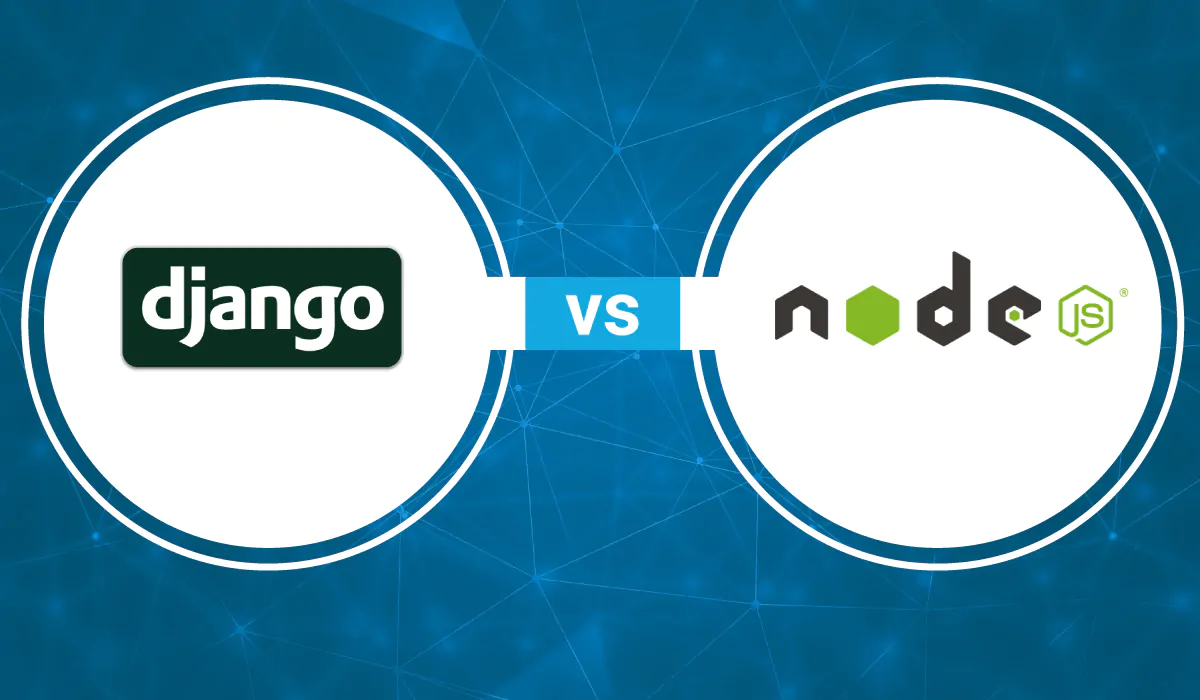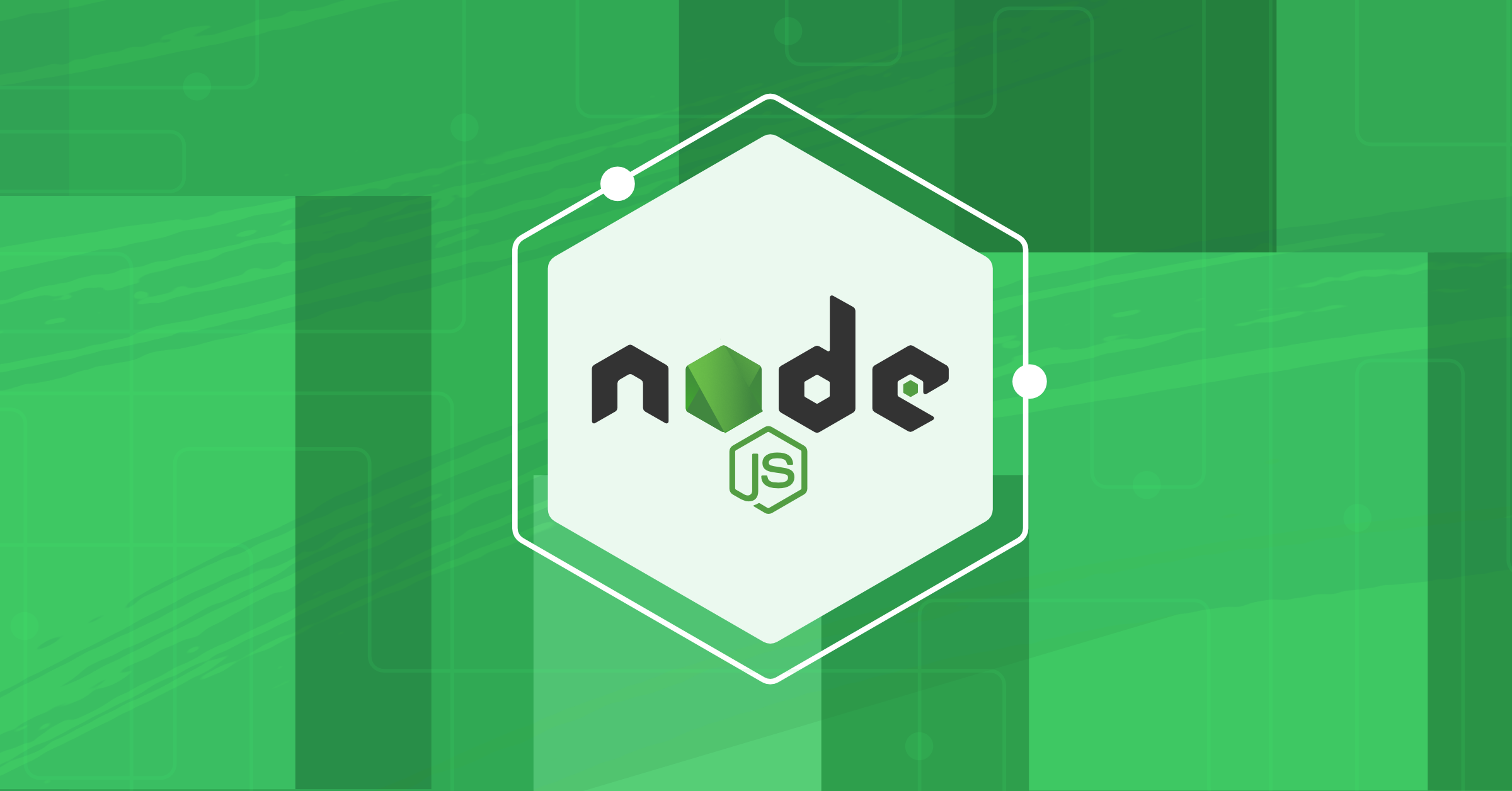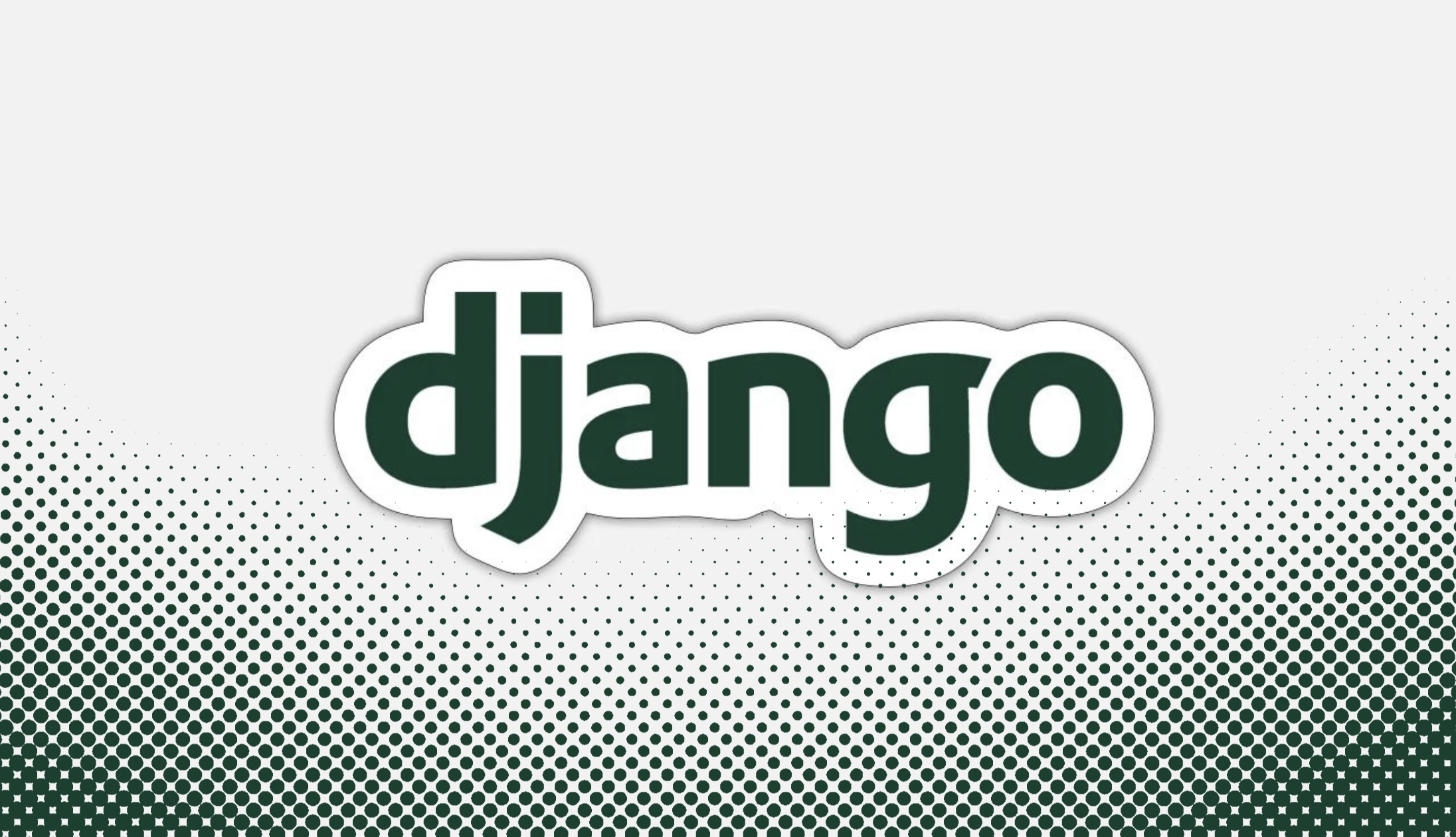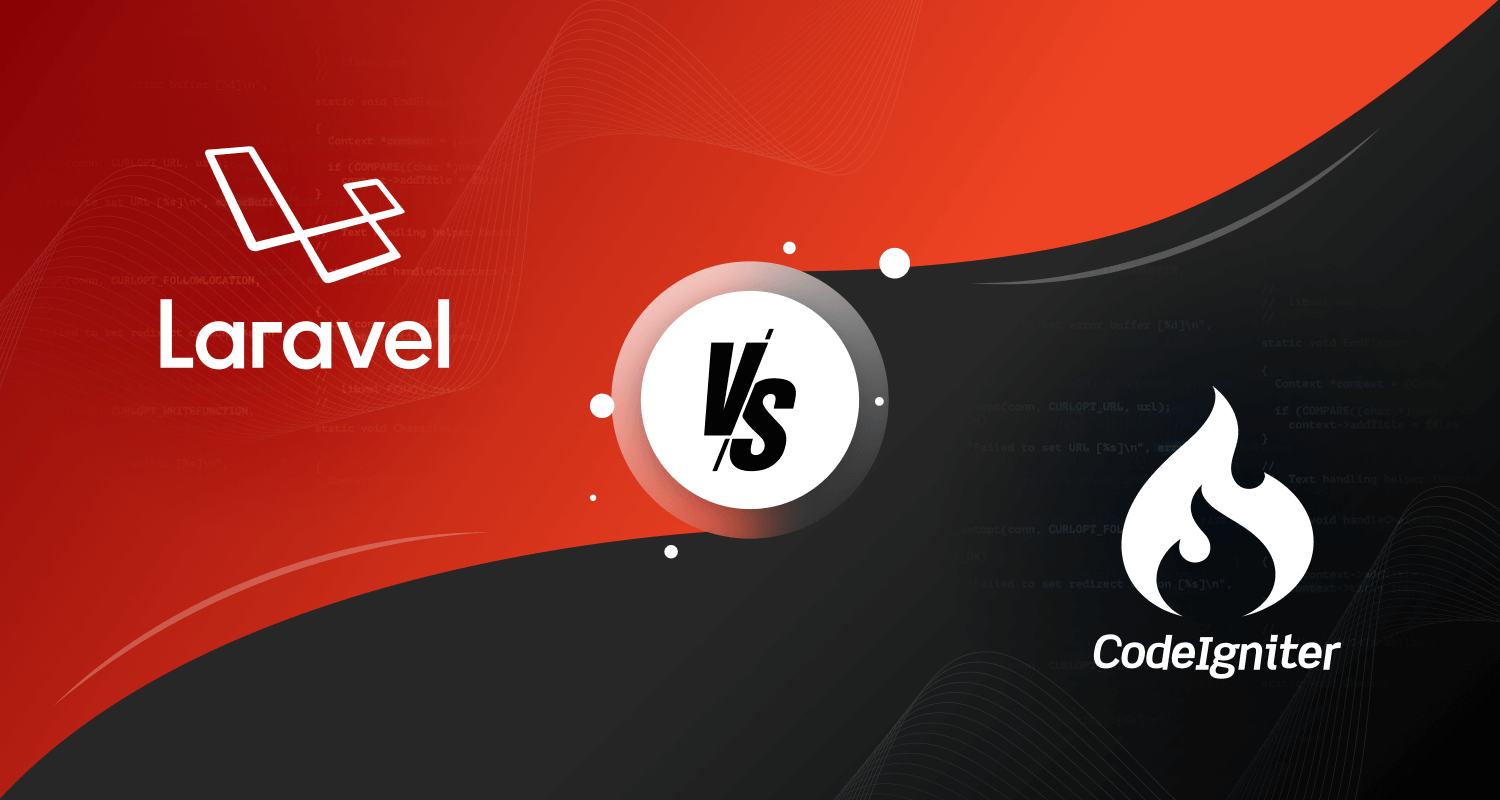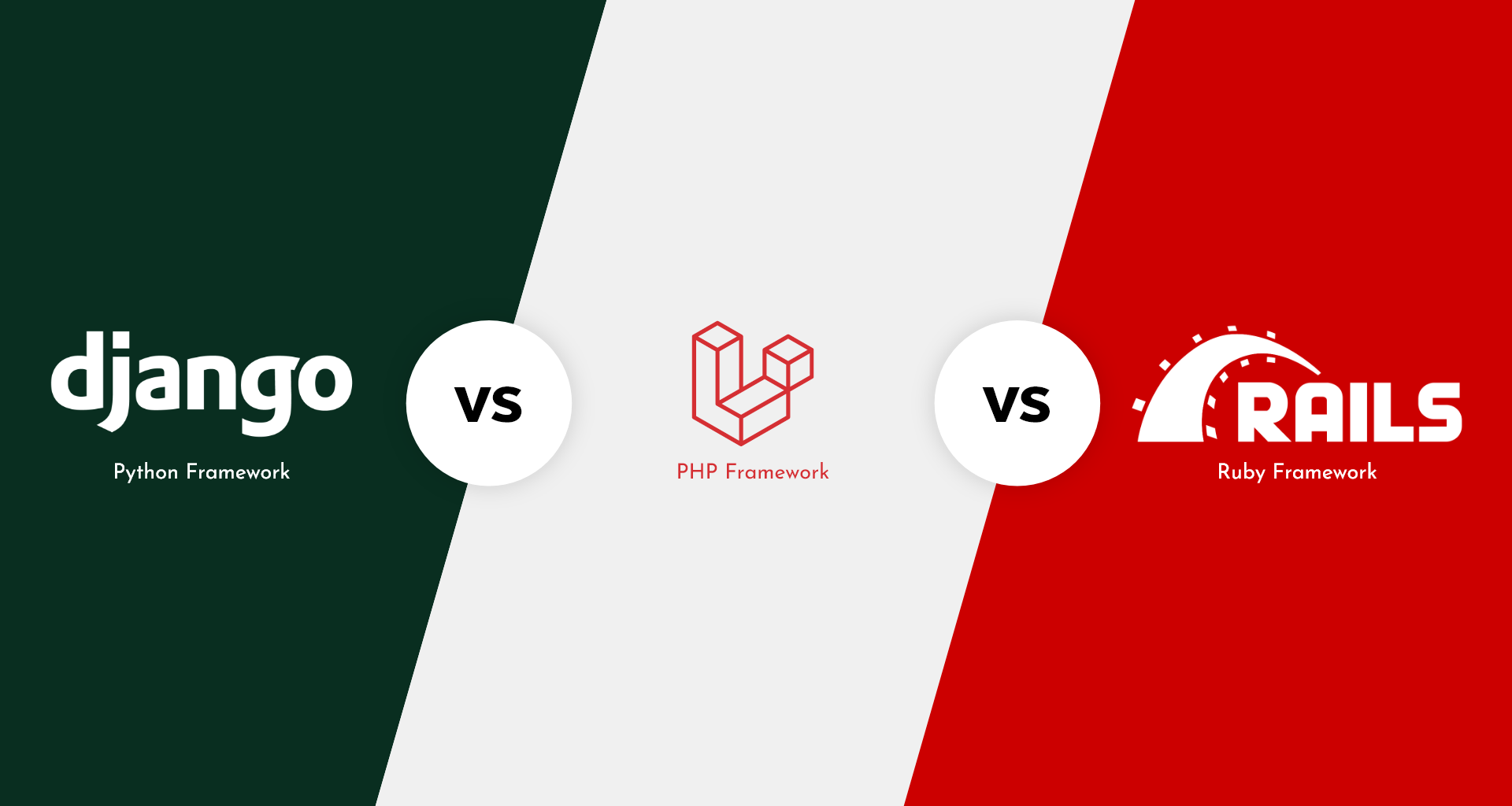Analyzing Django
What is Django?
Django is a high-level, open-source web framework created in Python, supported in 2005 and planned by Adrian Holovaty for building web applications quickly and efficiently. It follows the MVC (Model-View-Controller) architectural pattern, commonly referred to as MV in Django. Django provides structured foundation for developers to create web applications by emphasizing reusability, rapid development, and the ‘Don’t Repeat Yourself’ (DRY) principle.
Simply, and as stated on the Django website, it is the web framework for perfectionists with deadlines.
5 Django Key Features
1. Batteries-Included Philosophy: Due to its ‘batteries-included’ philosophy, Django has many built-in features and libraries that simplify common web development tasks. The framework also provides solutions for many essential functionalities, from handling authentication and URL routing to managing databases and form processing. This feature allows developers to focus on writing application-specific code instead of reinventing the wheel.
2. ORM (Object-Relational Mapping): Featuring a powerful Object-Relational Mapping (ORM) system, Django empowers developers to interact with databases through Python objects rather than relying on raw SQL queries. This not only enhances the intuitiveness of database management but also reduces security risks such as SQL injection. The flexibility of Django's ORM extends to support multiple database engines.
3. Authentication and Authorization: Django offers powerful security tools for handling user authentication and authorization. Developers can easily implement user registration, login, and password reset functionalities. Django’s built-in permission system allows fine-grained control over who can access specific application parts, enhancing security and data protection.
4. URL Routing: Django simplifies the mapping of URLs to views through its URL routing system. This feature contributes to the creation of clean and maintainable URLs for web applications. The URL dispatcher offered by Django can manage intricate URL patterns, parameter capturing, and redirection, fostering the creation of dynamic and user-friendly URLs.
5. Template Engine: Django boasts a notable template engine that separates the presentation layer from the application's logic. This separation enables developers to construct dynamic and easily maintainable HTML templates, promoting code reusability. The template system supports features such as template inheritance, custom template tags, and filters, facilitating the generation of dynamic content.
Pros and Cons of Using Django
Pros
1. Rapid Development: Django allow the creation of web applications through its advanced abstractions and integrated elements like the Object-Relational Mapping (ORM) system and Django Admin. These features empower developers to accelerate the prototype and deliver projects on schedule, streamlining the development process.
2. Security: Django takes security seriously and provides built-in protection against common web vulnerabilities like SQL injection, Cross-Site Scripting (XSS), and Cross-Site Request Forgery (CSRF). Features like automatic escaping of content and authentication systems help developers build secure applications by default.
3. Scalability: Django is designed to adeptly address scalability issues. By facilitating the utilization of distributed databases, caching mechanisms, and load balancing, Django empowers applications to expand effortlessly with rising traffic demands.
4. Community and Ecosystem: Django’s community contributes to an extensive ecosystem of third-party packages and libraries, providing solutions for various needs, from authentication to content management. This ecosystem accelerates development by reducing the need to reinvent the wheel.
5. Versatile: Django is a versatile framework suitable for various web applications, from simple informative platforms to complex and data-driven platforms. Its modularity allows developers to choose and integrate components as needed, making it adaptable to different project requirements.
Cons
1. Hosting Complexity: Django's hosting process can be challenging for many users, particularly beginners, as setting up and configuring Django applications on hosting platforms can be tricky. This complexity often demands a certain level of expertise to ensure a smooth deployment.
It is worth noting that experts at Ositcom take care of these complications, offering Django hosting service and support.
2. Monolithic Design: Django commonly promotes a monolithic application architecture, which may not align with the requirements of every project. Some modern development paradigms, such as micro-services or decentralized components, might be more appropriate in certain contexts.
3. Reduced Flexibility: Django's opinionated design and established conventions can constrain flexibility and control, particularly for developers that tend to make low-level decisions decisions. Making customizations in certain areas of the framework may involve working against its default settings, presenting a notable challenge.
Popular Companies Utilizing Django
Django has found its place among some of the most prominent platforms like Disqus, Instagram, Spotify, YouTube, BitBucket, and DropBox.
Analyzing Node.js
What is Node.js?
Node.js created by Ryan Dahl and first released it in 2009, is an open-source, server-side JavaScript runtime environment allowing developers to execute JavaScript code outside a web browser. Node.js is built on the V8 JavaScript engine from Google Chrome, making it highly efficient and performant.
One of the key features of Node.js is its non-blocking, event-driven architecture, which enables it to handle multiple concurrent connections efficiently. This makes it particularly well-suited for building scalable and real-time applications like web servers, chat applications, and APIs.
5 Node.js Key Features
1. V8 JavaScript Engine: Node.js is based ob Google’s V8 JavaScript engine, renowned for its speed and performance. V8 compiles JavaScript directly into machine code, making Node.js lightning-fast in executing code. This engine is constantly improved and updated, ensuring Node.js stays at the front of JavaScript runtime performance.
2. Non-Blocking, Asynchronous Architecture: Node.js adopts an event-driven, non-blocking I/O architecture, enabling it to manage numerous concurrent connections with efficiency. Its asynchronous design allows Node.js applications to execute tasks independently, without the need to wait for one operation to complete before initiating another. This characteristic enhances the speed and of applications, making Node.js particularly well-suited for real-time applications such as chat platforms and online gaming.
3. NPM (Node Package Manager): Npm is an integral part of Node.js, functioning as a package manager. It constitutes the largest global ecosystem of open-source libraries, boasting thousands of modules that are readily accessible for project integration. NPM streamlines the process of handling dependencies, offering a straightforward means of installing, updating, and overseeing packages. This simplification contributes to improved code reusability and facilitates collaborative development efforts.
4. Single Programming Language: Node.js enables developers to employ JavaScript for both client and server-side aspects of web applications. This integration of programming languages streamlines the development process, allowing developers to share code easily between the front-end and back-end, minimizing the necessity to switch between different languages.
5. Community and Support: Node.js thrives on a vibrant community of developers who actively contribute to its evolution. This expansive and enthusiastic community offers abundant resources, documentation, and assistance for individuals at various skill levels. The Node.js community consistently introduces fresh features, enhancements, and best practices to foster ongoing growth and support within the ecosystem.
Pros and Cons of Using Node.js
Pros
1. Fast: Node.js is built on the V8 JavaScript engine, which compiles JavaScript code to machine code, resulting in high performance. It uses non-blocking, event-driven I/O, making it suitable for handling concurrent connections.
2. Full-Stack JavaScript: Node.js enables developers to use JavaScript for both server and client-side programming, facilitating full-stack development. This encourages the reuse of code, facilitate the development process, and promotes collaboration between front-end and back-end developers, ultimately leading to a more integrated and efficient development workflow.
3. Large Ecosystem: The huge list of open-source libraries and packages available through npm (Node Package Manager) simplifies development by providing pre-built solutions for various tasks, reducing development time and effort.
4. Community Support: Node.js features a growing community of enthusiasts and developers. This community-driven ecosystem empowers developers to seek solutions to their questions, access tutorials, and receive support from an extensive network of Node.js users. This environment makes problem-solving and learning more accessible for developers.
Cons
1. Single-threaded: Operating on a single thread, Node.js faces limitations when it comes to CPU-bound tasks. While it efficiently manages I/O-bound operations asynchronously, tasks that heavily rely on the CPU can create bottlenecks by blocking the event loop. This has the potential to affect the performance of other requests as described by many.
2. Callback Hell: Callback Hell, a common challenge in Node.js, arises when dealing with nested callbacks during asynchronous operations, resulting in a situation known as the 'pyramid of doom.' This phenomenon can significantly hinder code readability and maintenance. Although there are remedies such as Promises and async/await to address this problem, managing it effectively still demands careful attention.
3. Maturity of Modules: Developers must be picky when selecting packages, as the quality and stability of third-party modules can vary, potentially leading to compatibility issues or security vulnerabilities in applications.
Popular Companies Utilizing Node.js
Here are some companies using Node.js: Netflix, NASA, Trello, PayPal, LinkedIn, Walmart, Uber, Twitter, Yahoo, eBay, and GoDaddy.
Node vs Django: Top Differences and Comparison
1. Flexibility Django, as a framework, exhibits limited flexibility with somewhat stiff development prerequisites. On the other hand, Node.js, being built upon a JavaScript library, boasts a higher degree of adaptability due to the abundance of diverse tools and functionalities at its disposal.
2. Security: Django is equipped with a powerful built-in security system that effectively safeguards against vulnerabilities, ensuring excellent protection. In contrast, Node.js has a comparatively lower level of inherent security, requiring manual resolution of security issues, making it less secure than Django.
3. Performance: Django utilizes Python as its programming language, which is often perceived as slower than JavaScript. However, Django's ORM (Object-Relational Mapping) and middleware provide a streamlined approach to data handling and development, potentially enhancing overall development speed. On the other hand, Node.js is recognized for its high performance, attributed to non-blocking I/O and the V8 JavaScript engine, which compiles JavaScript to machine code. This efficiency is particularly beneficial for server-side operations, especially in I/O-bound applications, leading to faster processing.
4. Scalability: Django exhibits good scalability potential with appropriate configuration, but handling numerous simultaneous connections may demand more effort compared to Node.js. The monolithic architecture of Django might pose challenges for horizontal scaling.
5. Speed of development: Django, with its base of Python, has garnered a reputation for facilitating faster development. The framework's built-in features, streamline data handling and overall development processes. This inherent efficiency contributes to a fast development process, allowing developers to build significant web applications with ease.
6. Maintainability and Futureproofing: Django projects tend to be more uniform and thus easier to maintain due to its convention-over-configuration philosophy. It is also a mature framework with a solid track record, indicating a stable future. Node.js’s non-blocking architecture can lead to callback hell if not properly managed, potentially affecting maintainability. Its thriving community and continuous updates suggest Node.js will remain relevant for the future.
7. Full-stack Development: Django, predominantly recognized as a backend framework, possesses the versatility to handle both front and back-end aspects of a web application, particularly when coupled with templating engines. However, for modern Single Page Applications (SPAs), developers might opt for a separate front-end framework to align with contemporary development practices.
In contrast, Node.js stands out as a go-to choice for full-stack JavaScript development. This unique feature allows developers to write code for both the client and server sides using JavaScript, thereby facilitating a seamless and streamlined development experience.
8. Cost Efficiency: Due to its comprehensive package of features, Django can be more cost-efficient due to its quick development turnaround and the reduced need for third-party plugins. This can lead to lower development and maintenance costs over time.
9. Community and Support: The Django community features extensive documentation and hird-party packages. This community is further fortified by the backing of the Django Software Foundation, which ensures a commitment to long-term support, stability, and ongoing development. Similarly, Node.js has cultivated a large and dynamic community of developers, boasting the world's largest ecosystem of open-source libraries accessible through npm. The Node.js community provides outstanding support through diverse channels, including forums, social media platforms, and conferences.
Conclusion
In conclusion, the comparison between Django and Node.js in 2024 reveals a clear advantage for Django in various aspects of web development. Django's powerful features, modernized development processes, and, most importantly, its emphasis on security make it a definite choice for developers seeking a reliable and secure framework
While Node.js stands out for certain use cases, particularly in chat applications where its non-blocking I/O and event-driven architecture play a signifcant role, it is important to acknowledge Node.js's critical cons, which might pose serious challenges in other scenarios. In the broader landscape of web development, Django emerges as a more well-rounded and secure choice, underscoring its prominence as a leading framework in 2024. Ultimately, the decision between Django and Node.js depends on the specific requirements of the project, but for a wholesome and secure overall solution, Django remains the winner.
At Ositcom, we recognize the strengths of both Django and Node.js. If you're considering website development, rest assured that at Ositcom, we are well-versed in both Django and Node.js. Our expert team is proficient in leveraging the strengths of each framework, allowing us to tailor our approach based on your specific requirements. Don't hesitate to get in touch with us to explore how our team can transform your vision into a high-quality digital solution.



